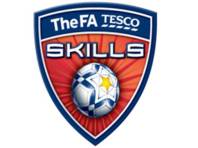 |
One of the most Important Tips to remember in Football, has to be the 3 Ps......Practise,Practise, Practise......Whether you are in the garden,over the park,or round a family members or friends, take a ball and just keep on Practising....... Rob and Lee............. General guidelines to healthy eating IntroductionWith so many new ideas and theories as to what constitutes a healthy diet, it is understandable that people can find the issue a bit confusing. This section is designed to give you some general information on the food we eat and how your body uses it, allowing you to decide what you want to consume. GuidelinesFood and drink provide us with the building blocks we need to help repair, grow and replenish our bodies on a daily basis. The simpler and more natural the food we put in, the easier it is for our bodies to recognise and use this source of fuel.
Traditional methods of storing and preserving foods used natural ingredients to do this, meaning that the food remained healthy and beneficial to those eating it. However, today’s lifestyle affords us little time to prepare food correctly and naturally, so we heavily rely on additives and preservatives to do this for us.
These ‘advances’ in our system may provide us with convenience but not optimum health. Food needs to be in its natural state for our bodies to recognise it and use it effectively. The body can cope tremendously well when processing additives and other toxins it doesn’t need but, when it has to deal with these on a regular basis, it starts to struggle. This can resulting in lethargy and, eventually, illness.
Simple, wholesome and additive-free foods are essential for good health and, although we cannot all grow our own vegetables and make our own sauces, we can still shop wisely.
To cook wholesome, nutritious and healthy food is not as expensive or time consuming as we’re led to believe: stir-fries take minutes to prepare and cook; fish is a great source of protein and is very quick to cook; vegetables are cheap; wholewheat pasta is readily available in all supermarket stores as are a variety of additive-free sauces.
Organic foods cost a little more than non-organic, but they will be better for you in the long run. All in all, a healthy diet is not difficult to incorporate and will benefit you in the long run, both physically and emotionally. Eat what your body needsAs a rule of thumb it is said that the body only needs what it uses. This means that a professional athlete using lots of energy on a consistent basis needs to supply the fuel necessary to maintain this effort. Food sources high in carbohydrates will be top of the list to give the athlete the necessary calories to burn whilst competing and training.
However, the majority of us are not professional athletes yet we will often eat a similar amount of calories. If the body does not need the fuel it is provided with, it will simply store the excess in fatty tissues around the body, so only eat what your body needs! SummaryThe overall message is that fresh, organic, additive-free food is best. However, there is a large body of information about what food contains and how it can benefit your body.
The section on 'Bulk nutrients - sources and major roles' provides more detailed information on what nutrients different foods contain and how your body uses them. |